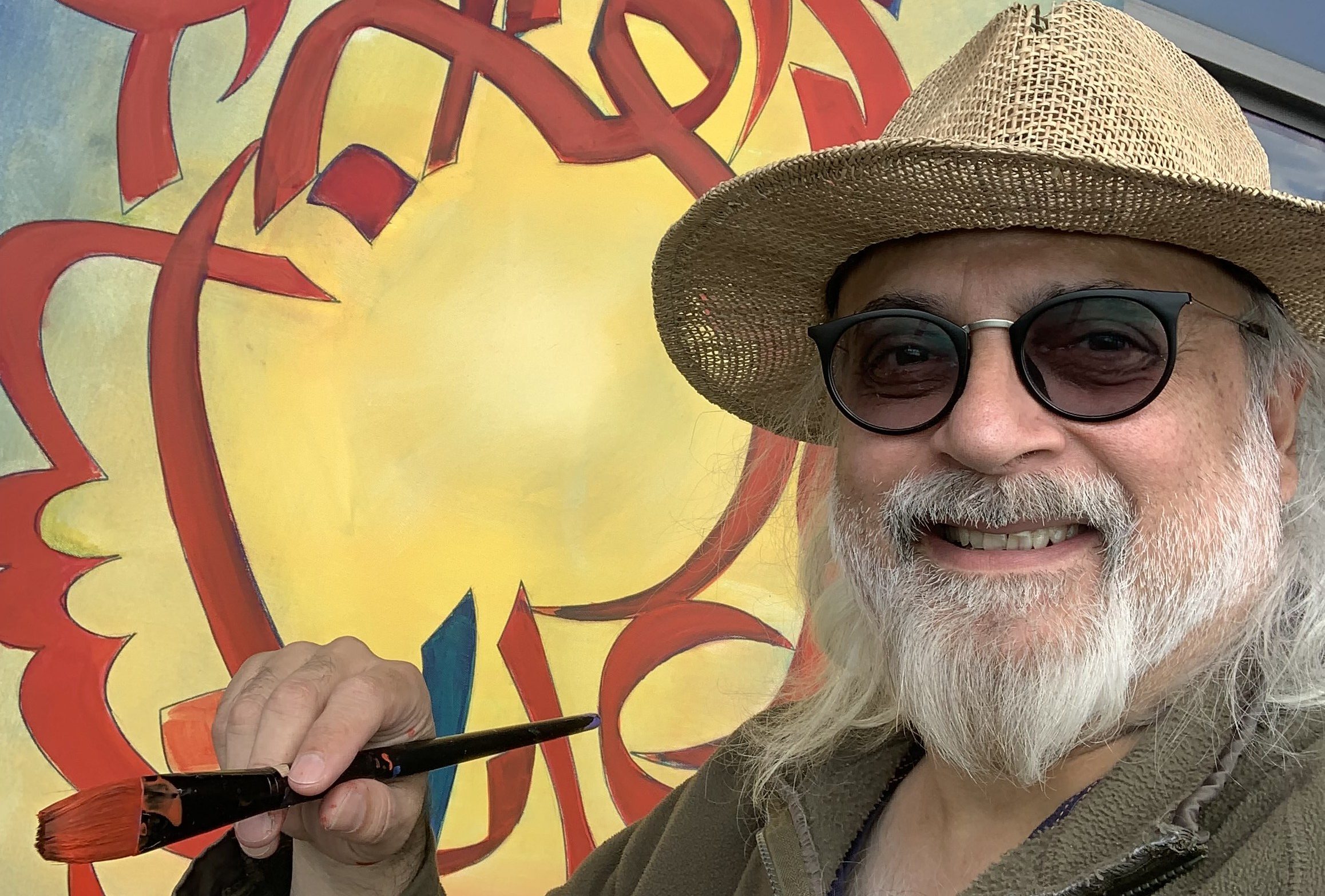Exhibitions of paintings depicting aspects of the Holocaust aren’t new; in fact, such art shows are generally part of Toronto’s annual Holocaust Education Week, some of whose programs this year extend to the end of this month.
But these works are by a Muslim.
The eight or so acrylics on canvas to be displayed at a downtown Toronto venue on Thursday (Nov. 25) are by Rimmel Khan, executive director of the Council of Muslims Against Antisemitism (CMAA), which bills itself as the first worldwide, all-Muslim group dedicated to fighting hatred of Jews.
The council was launched last April—on Yom ha-Shoah—by about 140 Muslim leaders, academics, and activists in England, the United States, Switzerland, and Canada. Their aim is to combat antisemitism “in all its guises.”
According to his biography, the Toronto-based Khan is a well-known media personality in Pakistani circles. He has worked in his native Pakistan, Britain, and Canada in creative arts to promote culture and diversity.
But he’s not an artist by profession, and chuckles when asked if he considers himself a painter.
“Absolutely not,” Khan, 62, told The CJN. “I’m the first to admit it.”
Even so, the works in the exhibit, finished over the past few months, manage to evoke the horrors of the Holocaust. There are grim-faced camp prisoners in blue-striped uniforms on the train tracks to Auschwitz. One, from an overhead perspective, shows women in a gas chamber suddenly aware of their fate. Another is of a woman and her child about to be shunted onto a train.

“I put my mind to it,” said Khan, who normally paints Islamic calligraphy. “This was a totally different genre.” Some of the works, he said, are conceptual while others are “obviously self- descriptive.”
He said the CMAA discussed putting on an event for Holocaust Education Week as a way of helping to fulfill its mandate of combating antisemitism.
“We all came up with the idea of doing something a little different: A Muslim painter—and I use the word ‘painter’ very loosely—to express how one feels about the Holocaust.”
The Holocaust has “always fascinated me and intrigued me.”
Khan said he may have first encountered the subject at the Catholic boarding school, run by Irish nuns, that he attended as a boy in Pakistan. Muslims who could afford it considered it the best education.
“Religion was a very universal thing for me,” Khan said. The subject then became “self-taught, self-learned,” and a result of a lot of reading, most recently online.
In Pakistan, the Holocaust “was never really something in our minds.” While his native country’s educated class is aware of the Holocaust, others have “no clue. It isn’t even that they don’t believe it, they don’t know about it.
“For me, it was just (about) human beings.”
He’s not aware of any other Muslim artist who has depicted the subject. “I guess (it’s) because it’s such a taboo in Muslim countries.”
Khan said he’s been to Israel a few times. “To me, that’s a society I wish Pakistan would have been.”
He said the project has deepened his understanding of the Holocaust.
“It has changed me to a feeling of empathy and a more real understanding of the darkness man is capable of.”
Raheel Raza, the Canadian activist who is playing a leading role in the CMAA, said that given her organization’s mission to push back against antisemitism and in light of the Abraham peace accords between Israel and Muslim nations, the council felt that it “should do something that has never been done before. We saw (Khan’s) paintings and said, ‘these need to be exhibited.’”
Presented under the auspices of the CMAA, the exhibit is sponsored by the Ronin Soho Samurai Museum in downtown Toronto. Guest speakers will be Zenji Nio, a Buddhist inspirational speaker; Guido Smit, a Holocaust educator and executive director of Muslims Facing Tomorrow; and Raza, president of Muslims Facing Tomorrow.
It takes place Nov. 25 from 3:30 p.m. to 7:30 p.m. at the Vault, One King West (B1 Floor), Toronto.










